More than 1,000 objections to large biogas plant
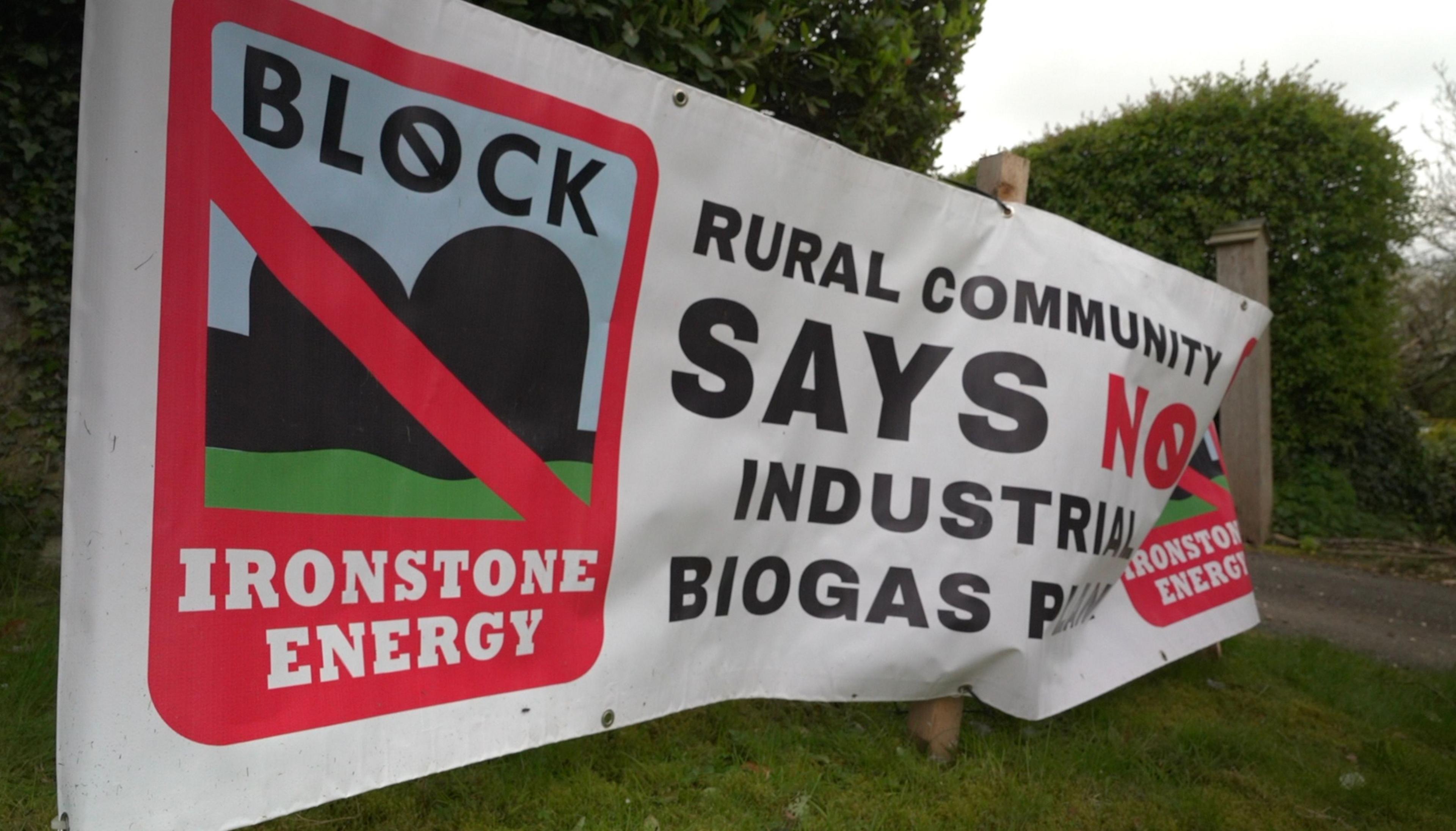
Residents living in communities near to the proposed site are campaigning to block it
- Published
More than 1,000 people have signed a petition against a gas generation plant proposed for a rural community near to Grantham.
Residents living in and around the village of Sewstern say they are concerned about increased levels of lorry traffic and the visual impact of an industrial plant on the countryside should the project go-ahead.
Lorries would be used to transport a variety of locally-farmed crops to the anaerobic digester which would produce methane as they decompose.
The developer, Future Biogas, says the facility will produce energy from local crops, create jobs and improve the quality of local farmland.
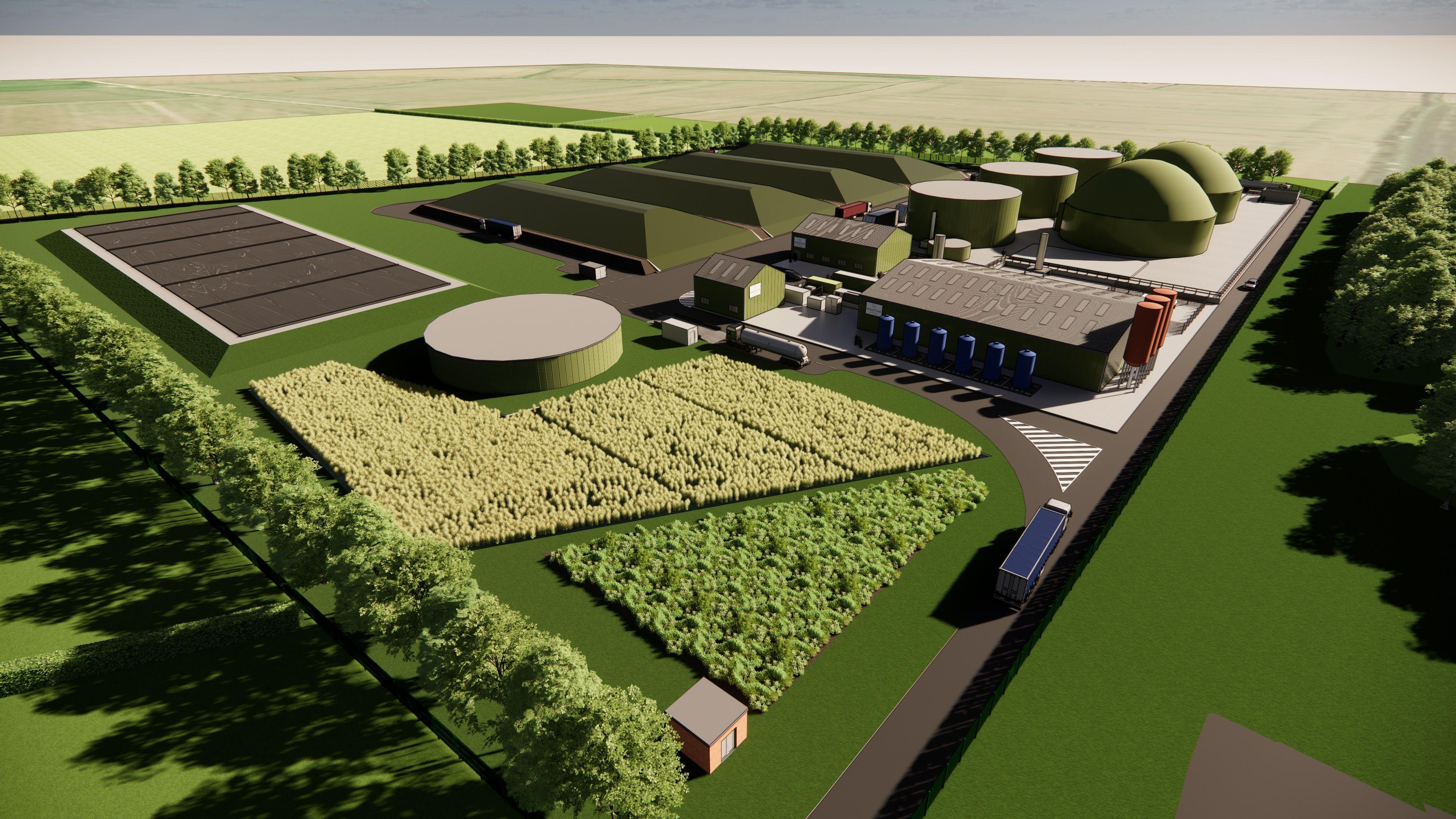
An artist's impression of the anaerobic digester proposed for the village of Sewstern near Grantham
Vanessa Tombs, who lives near to the site, says she is not opposed to the idea of an anaerobic digester in the area but believes the developer should look at locations that are more suited to industrial use: "It's a huge industrial biogas plant. It needs road infrastructure adjacent to it.
"We believe it shouldn't be built in open countryside and it shouldn't be built on a greenfield site, we have a selection of brownfield sites in our area that we believe the applicant should consider."

Local resident Vanessa Tombs says there are alternative sites in the area that are more suitable
Local resident Jamie Smith said he has concerns for road safety if the traffic levels increase: "My children go up and down the roads on their bikes, particularly at harvest time.
"But this proposal will increase traffic not just at harvest time but throughout the entire year."
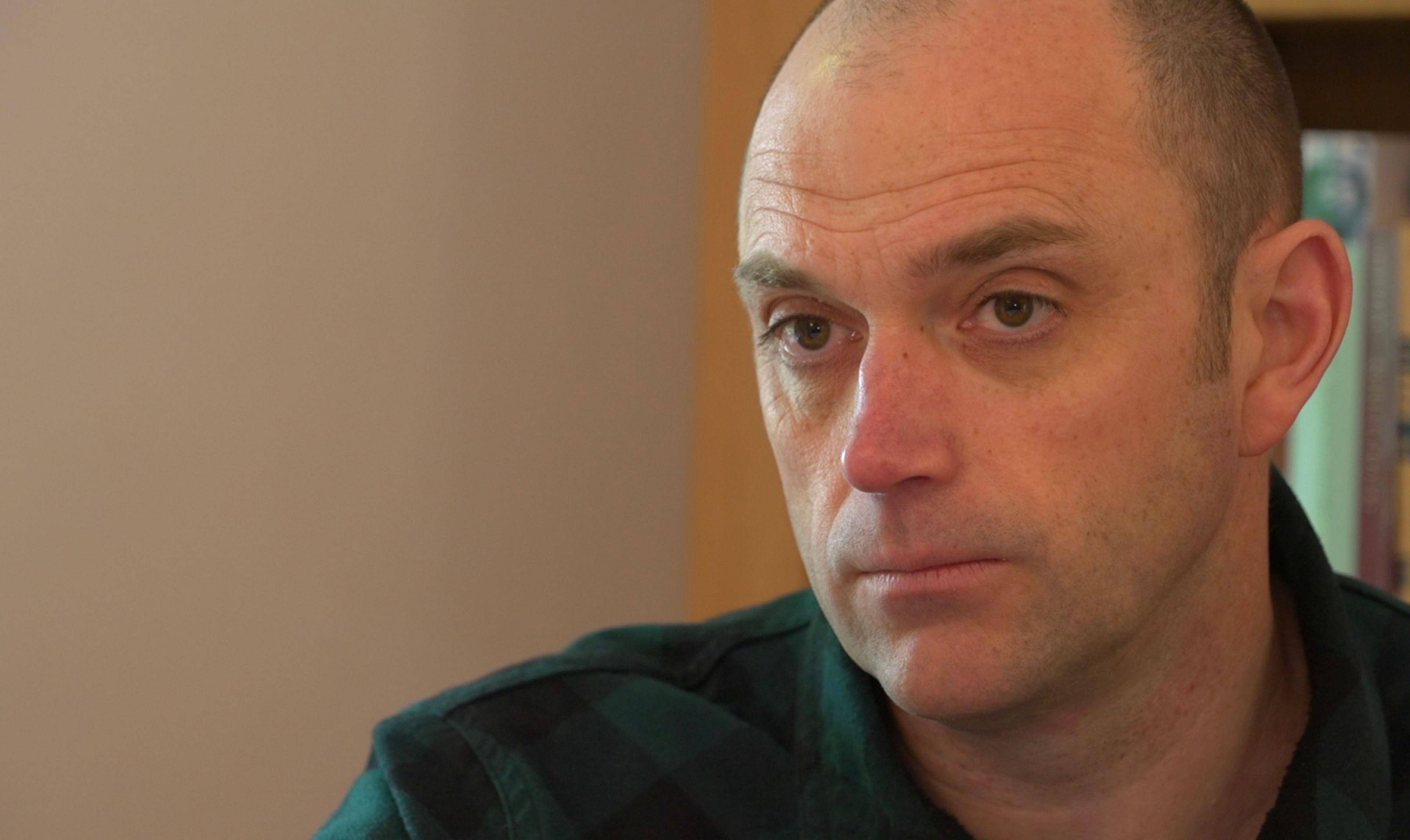
Jamie Smith says he is concerned for the safety of his children on the roads
The completed anaerobic digestion facility would be approximately six hectares or eight football pitches in size.
A planning application for the proposal has not yet been submitted, but the developer has shared its initial proposals with local residents.
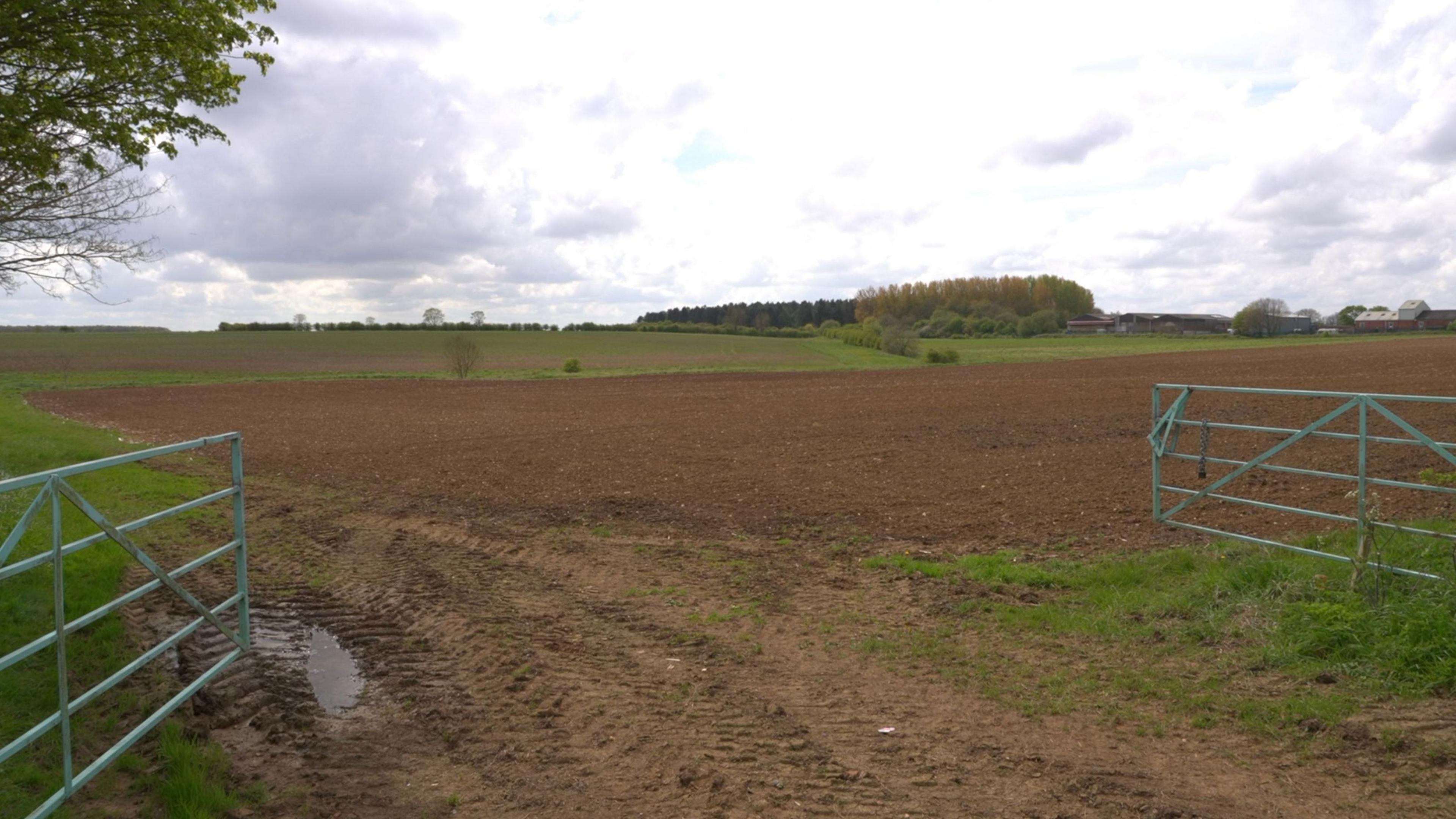
The proposed digester site is on the brow of a hill near to the village of Sewstern
In addition to producing methane from crops, the facility would capture carbon dioxide to prevent it from harming from the atmosphere.
Carbon dioxide would then be taken by lorry from the site and stored permanently underground.
Future Biogas says its anaerobic digester would "produce enough gas to heat a town roughly the size of Grantham".
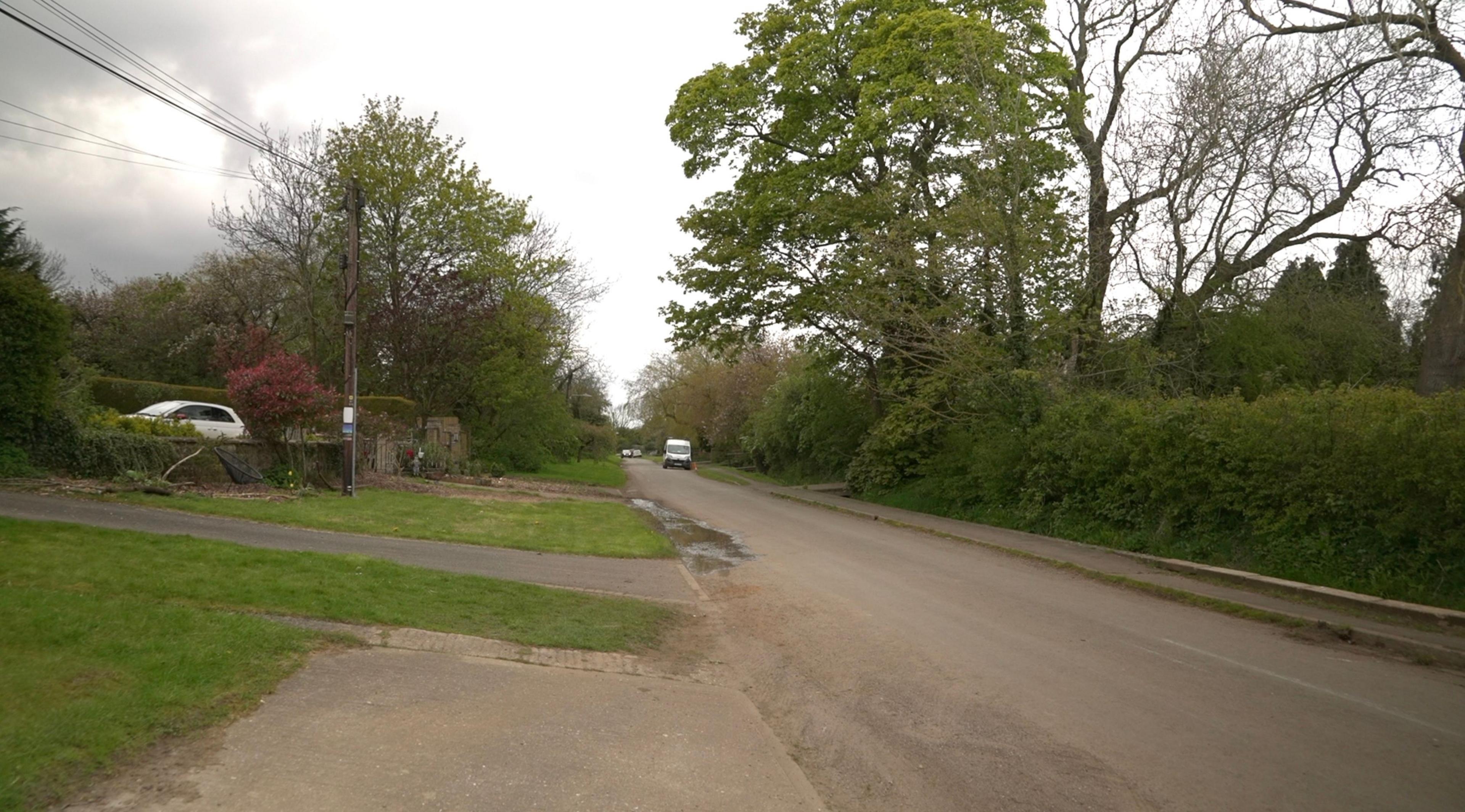
Residents argue that the narrow country lanes are unsuited to heavy lorries
Philipp Lukas, the Chief Executive of Future Biogas, said the development would be "well screened" from public view and that most of the traffic bringing crops to the anaerobic digester would travel on farm tracks rather than on public roads.
"At harvest times our transport consultants have calculated that there may be a three to 4% increase in traffic for a six to eight week period of the year." he said.
"For the rest of the year, when we are just dribbling-in the crops just in time we are talking 2%. So very small increases in traffic volumes."
Mr Lukas said Future Biogas was currently operating 12 other anaerobic digestion plants in the UK and any residents with concerns would be "welcome to visit them".
Follow BBC Lincolnshire on Facebook, X (formerly Twitter), external, and Instagram. Send your story ideas to eastyorkslincs.news@bbc.co.uk